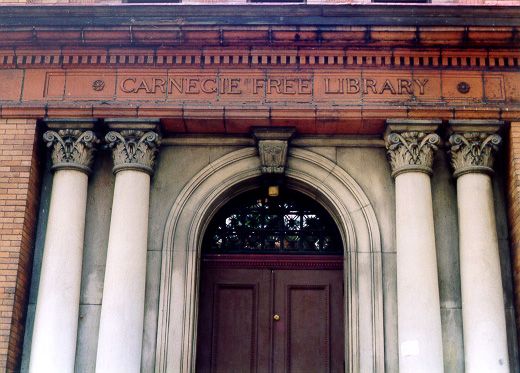We Must Save Our Libraries
“A library outranks any other one thing a community can do to benefit its people. “
Carnegie, Andrew
These are the words of wealthy industrialist, Andrew Carnegie who built the first public library in his hometown of Dunfermline, before going on to create thousands of libraries in the UK, Ireland, USA and across the world.
Carnegie famously said:
‘The man who dies thus rich dies disgraced.’
One can only imagine how he would feel about today’s library closures – his legacy being disappeared by short-term-ism.
And then...

Things may have changed in how we consume information and libraries have evolved with that change. But they are and always will be, community hubs, sources of advice, wellsprings of inspiration, places for self-advancement and human exchange.
Return on Investment: Studies show that for every dollar invested in public libraries, they can generate a return of at least six times that amount.
Support for Businesses and Job Seekers: Libraries help entrepreneurs by providing free access to market data, business planning services, and workshops. They also provide crucial resources for job seekers, including free computer and internet access and resume assistance.
"Halo Spending" Effect: Libraries can boost local economies by attracting footfall, which leads to increased spending at nearby businesses, like cafes and shops.
Cost Savings for the Community: By providing free access to books, magazines, movies, and other resources, libraries save the public a significant amount of money each year.
Digital Hubs: Modern libraries have expanded their digital offerings to include e-books, online journals, and streaming services.
Makerspaces: Many now feature "Makerspaces" with equipment like 3D printers, laser cutters, and virtual reality gear to foster creativity and innovation.
Social Services and Community Support: Libraries are increasingly offering services beyond traditional lending, such as providing space for social workers, offering health and wellness workshops, and even lending out technology like Wi-Fi hotspots and cell phones to bridge the digital divide.
We should not only save our libraries but continue to view them as a community learning facility, accessible to all. Let's get creative in the spirit of Andrew Carnegie and create community libraries in many more places across the world!